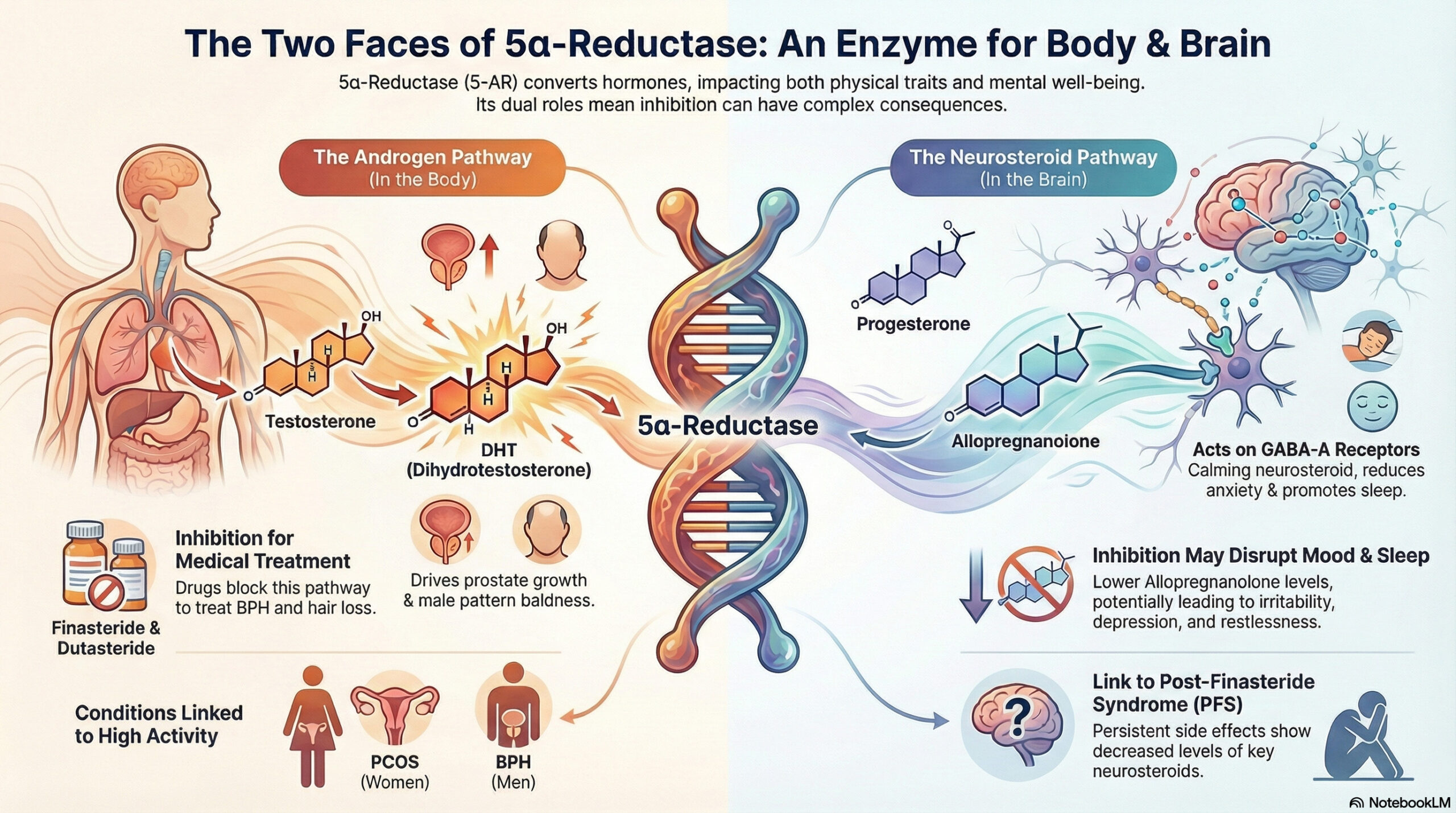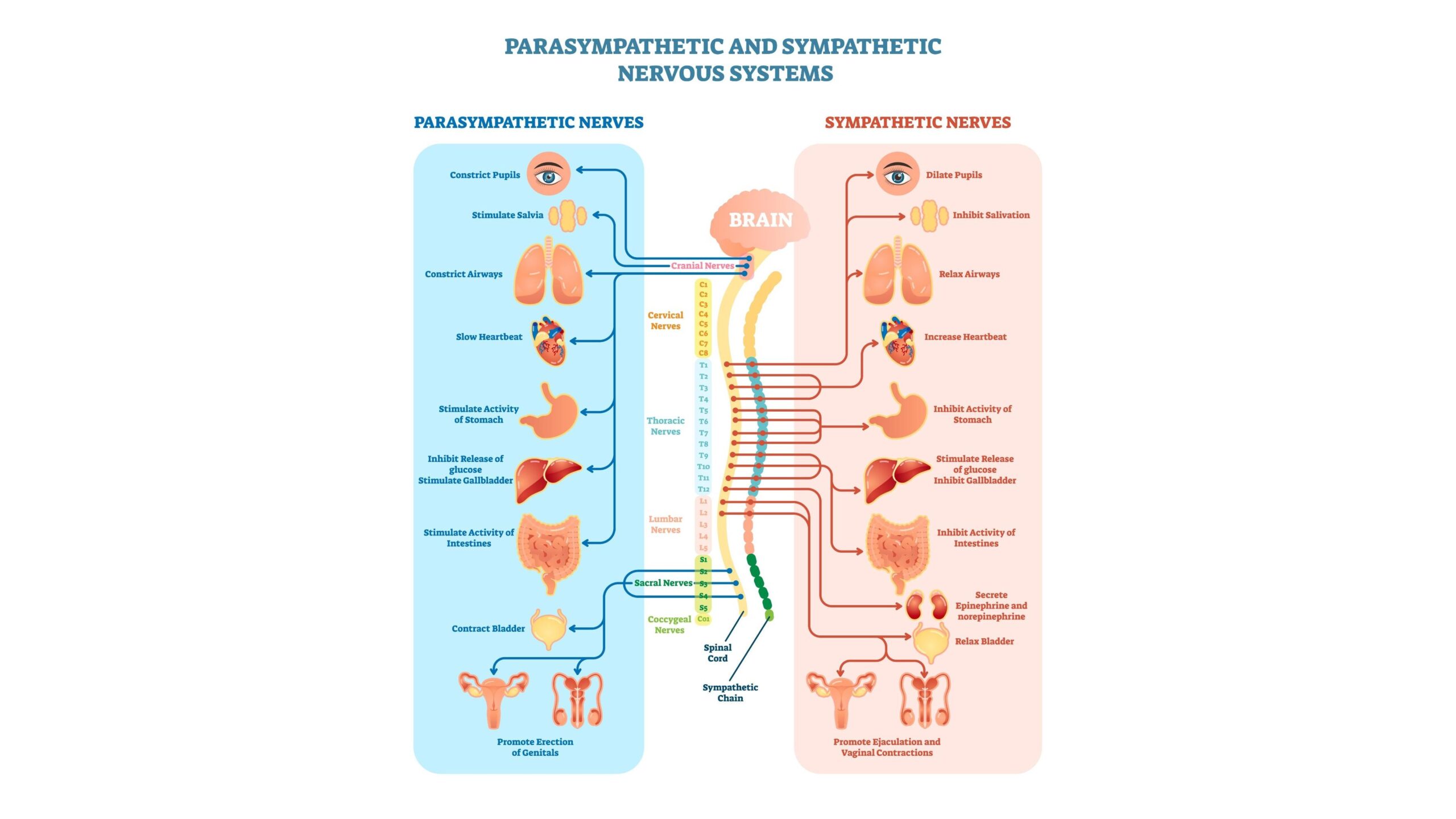Sex hormone–binding globulin (SHBG) is a protein made mainly in the liver. It binds strongly to key sex hormones like testosterone, dihydrotestosterone (DHT), and estradiol. By doing so, SHBG controls how much of these hormones stay “free” (unbound) and biologically active in the body. Think of SHBG as a gatekeeper: it influences how much hormone is available to tissues in both men and women.
5β-Reductase (AKR1D1): Hormone Off-Switch & Digestion Hero
Imagine your hormones as messengers racing through your body, delivering important signals. But what happens when they stick around too long? Enter 5β-reductase, a hardworking liver enzyme that acts like a gentle “off-switch,” calming down hormones like progesterone, testosterone, and cortisol while powering up the bile that helps you digest fats. This unsung hero keeps your hormone levels balanced and your digestion smooth—yet most people have never heard of it.[journals.plos]
Why DHT Blockers Cause Insomnia & Anxiety: How Progesterone Solves the 5-Alpha Paradox
In the pursuit of optimized health, hormonal balance, and aesthetic preservation, the enzyme 5-alpha reductase (5-AR) often plays the role of the villain. It is the biological catalyst responsible for converting testosterone into dihydrotestosterone (DHT), the potent androgen blamed for male pattern baldness, acne, and prostate enlargement. Consequently, a massive market has emerged for “DHT blockers”—ranging from pharmaceutical heavyweights like finasteride to natural pantry staples like pumpkin seeds, zinc, and saw palmetto.
Breaking the Insulin-Adrenaline Cycle of Hot Flashes
Hot flashes are not simply the price of admission to menopause. They are a dynamic signal of neuroendocrine stress, metabolic inflexibility, and sympathetic overdrive—often amplified by inefficient catecholamine clearance. Emerging evidence from Jerilynn Prior’s work with oral micronized progesterone 300 mg, alongside the arrival of neurokinin-3 (NK3) receptor antagonists like fezolinetant, now allows a more nuanced and mechanistic approach to vasomotor symptoms (VMS) that goes far beyond “give estrogen or not.” Oral micronized progesterone for perimenopausal night sweats and hot flushes a Phase III Canada-wide randomized placebo-controlled 4 month trial | Scientific Reports
Acetylcholine: Key to Hormones & Metabolism Balance
Acetylcholine (ACh) stands as one of the most vital neurotransmitters in the human body. It plays fundamental roles in muscle contraction, autonomic nervous system regulation, and cognitive functions.





